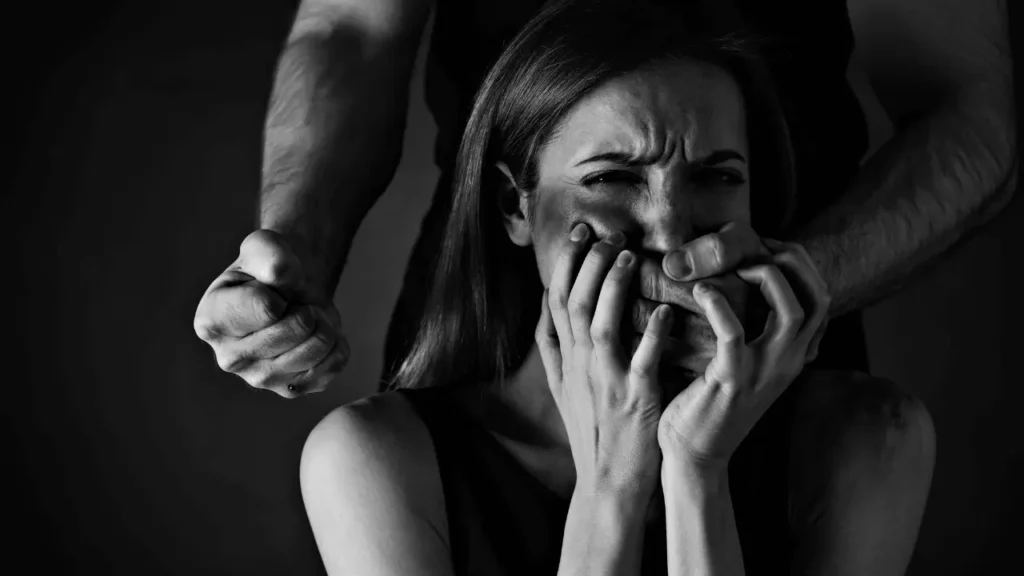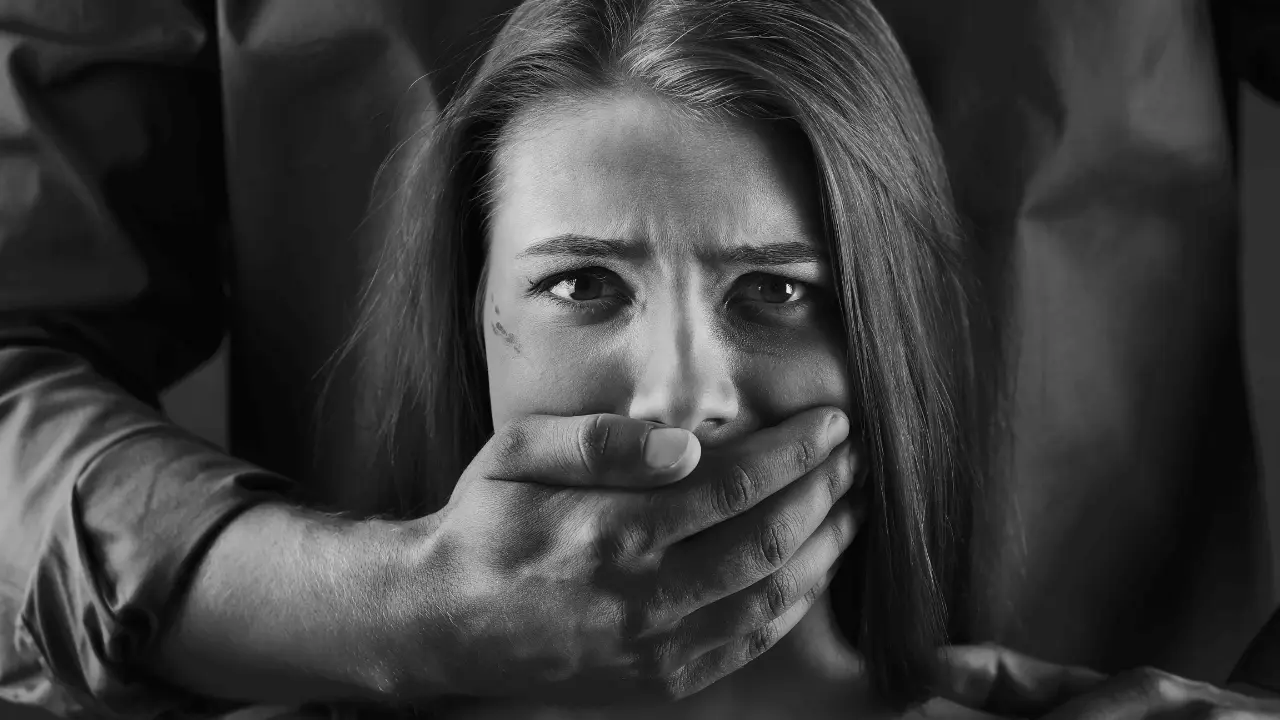Breaking the silence surrounding domestic abuse is a crucial step towards ending its insidious grip on our society. While it takes immense courage to report such incidents, knowing what happens once you take that brave step can provide some reassurance and clarity.
In this article, we will explore the process of what happens when you report domestic abuse to the police, shedding light on the immediate response, evidence collection, protection orders, and more. Join us as we navigate through this important journey and learn about the role of law enforcement in addressing domestic violence head-on!
What Happens When You Report Domestic Abuse To The Police

When you report domestic abuse to the police, they must make an arrest or file charges if they have probable cause to believe a family offense has occurred. The police should fill out a domestic incident report which describes what happened and provides a record of the incident. However, here’re some general steps that may be taken:
1. Immediate response
When you report domestic abuse to the police, one of the first things that will happen is an immediate response. This is a crucial step in ensuring your safety and holding the abuser accountable for their actions.
Upon receiving a call or visit from someone who reports domestic abuse, the police are trained to respond promptly and with urgency. They understand that time is of the essence when it comes to protecting victims and potentially preventing further harm.
The immediate response may involve dispatching officers to the scene where they will assess the situation and ensure everyone’s safety. They will gather information about what occurred, speak with all parties involved, including witnesses if any, and document important details.
During this initial phase, it’s essential for victims to provide as much accurate information as possible. This includes describing incidents of abuse, providing details about injuries sustained or damage caused, and sharing any evidence such as photos or messages that can support their case.
2. Interview
When you report domestic abuse to the police, one crucial step in the process is the interview. This is where you will be asked to provide a detailed account of what happened. The purpose of this interview is to gather as much information as possible and ensure that your voice is heard.
During the interview, it’s important to remember that you are not alone. The officer conducting the interview has been trained in handling cases like yours and understands how sensitive these situations can be. They will approach the conversation with empathy and respect for your privacy.
The questions asked during the interview may vary depending on the circumstances surrounding your case. You might be asked about specific incidents, any injuries sustained, or if there were any witnesses present at the time of abuse.
It’s normal to feel nervous or overwhelmed during this process, but try your best to stay calm and answer truthfully. Remember that by sharing your experience, you are taking a courageous stand against domestic violence.
3. Evidence collection
Evidence collection is a important step in the process of reporting domestic abuse to the police. When you report an incident, law enforcement officers will gather evidence to build a strong case against the perpetrator. This may involve taking photographs of any visible injuries, documenting any physical damage or signs of struggle at the scene, and collecting any relevant items such as weapons or clothing.
The collection of evidence is done meticulously and professionally. The police will ask you detailed questions about what happened, seeking information that can be used to corroborate your account. They may also request medical records or speak to witnesses who were present during the incident.
It’s important to remember that every piece of evidence matters when building a case against an abuser. Even seemingly insignificant details can play a significant role in establishing patterns of behavior or proving intent.
4. Protection orders
Protection orders are an important tool in addressing domestic abuse and ensuring the safety of survivors. When you report domestic abuse to the police, one possible outcome is that they may help you obtain a protection order. This legal document is designed to prevent further harm by keeping the perpetrator away from the survivor.
A protection order, also known as a restraining or no-contact order, can be issued by a court to prohibit the abuser from contacting or approaching the survivor. It establishes clear boundaries and consequences if those boundaries are violated. The specifics of a protection order vary depending on jurisdiction, but it often includes provisions such as requiring the abuser to stay away from certain locations or individuals related to the survivor.
By obtaining a protection order, survivors gain some measure of control over their situation and increase their chances of staying safe. It provides them with legal recourse should their abuser attempt any form of contact or harassment.
5. Arrest
In the process of addressing domestic abuse. When you report domestic violence to the police, they have the power to take immediate action and ensure your safety. The decision to arrest an abuser depends on various factors, including the severity of the incident and evidence available.
Once an arrest is made, it sends a strong message that domestic abuse will not be tolerated. It holds the perpetrator accountable for their actions and provides temporary relief for victims. However, it’s important to note that an arrest does not guarantee long-term protection or resolution.
In some cases, arrests can escalate tensions within relationships or lead to retaliation from the abuser. Therefore, it’s essential for victims to seek additional support through counseling services or shelters during this time.
6. Referral to support services
Referral to support services is the process of addressing domestic abuse. Once you report the incident to the police, they understand that your safety and well-being are paramount. They will connect you with various support services that can provide assistance tailored to your specific needs.
These support services may include organizations such as local women’s shelters, counseling centers, or helplines specializing in domestic violence cases. These resources have trained professionals who are experienced in providing guidance and support to survivors of abuse.
By referring you to these services, the police ensure that you receive the necessary help and care beyond their immediate intervention. Support services can offer emotional support, legal advice, housing options, advocacy, and access to other community resources that can aid in your recovery journey.
7. Follow-up investigation
Follow-up investigation is a also crucial step in the process of addressing domestic abuse. Once a report has been made to the police, they take it upon themselves to gather further evidence and ensure that justice is served.
During the follow-up investigation, officers will interview witnesses, collect additional statements, and analyze any available forensic evidence. They may also conduct background checks on both parties involved in order to establish a pattern of behavior or previous incidents.
The purpose of this thorough investigation is to build a strong case against the perpetrator and provide support for the victim. It allows law enforcement to gather all necessary information and present it before prosecutors for consideration of charges.
Moreover, in cases where an arrest was not made immediately following the initial report, follow-up investigations can help determine if there are any ongoing risks or threats to the victim’s safety. This information can then be used by authorities when deciding whether additional protection measures such as restraining orders or supervised visitation should be put in place.
The Prevalence of Domestic Abuse

Behind closed doors, a silent battle rages on – domestic abuse. It is an issue that knows no boundaries, affecting people from all walks of life regardless of their age, gender, or social status. The prevalence of domestic abuse is staggering and often goes unnoticed due to the deep-rooted shame and fear that survivors experience. If need any help visit safe harbour for all
Statistics paint a grim picture: one in three women worldwide have experienced physical or sexual violence at the hands of an intimate partner in their lifetime. Men too are victims, with approximately one in four experiencing some form of domestic violence. These numbers merely scratch the surface as many cases go unreported.
Domestic abuse can take various forms – physical, emotional, financial, or sexual – leaving lasting scars on its victims both physically and mentally. It tears families apart and perpetuates cycles of violence that span generations. Despite being a prevalent issue across societies globally, it remains shrouded in secrecy due to societal stigmas and cultural norms surrounding relationships.
The alarming reality is that anyone can be impacted by domestic abuse; it transcends race, religion, socioeconomic status – nobody is immune. By shedding light on this pervasive problem and understanding its widespread nature, we can empower survivors to break free from the cycle of abuse and build safer communities for all
Importance of Reporting Domestic Abuse
- Reporting domestic abuse is a step in breaking the cycle of violence and ensuring the safety and well-being of victims. By reporting incidents to the police, individuals can seek immediate help, hold perpetrators accountable, and access vital support services.
- Reporting domestic abuse provides an opportunity for victims to receive immediate assistance. When the police are notified about an incident, they can respond promptly to ensure the safety of everyone involved. This quick response can be critical in preventing further harm or escalating violence.
- Reporting domestic abuse helps hold perpetrators accountable for their actions. By sharing information with law enforcement, victims contribute to building a case against their abusers. This documentation becomes essential evidence that can strengthen legal proceedings and increase the likelihood of justice being served.
- To providing immediate aid and holding abusers accountable, reporting domestic abuse connects victims with much-needed support services. Law enforcement agencies often work closely with community organizations that specialize in assisting survivors of domestic violence. These organizations offer counseling, shelter options, legal guidance, and other resources that empower survivors on their journey towards healing and rebuilding their lives.
The Role of The Police in Addressing Domestic Violence
The role of the police in addressing domestic violence is crucial in ensuring the safety and well-being of individuals affected by such abuse. When it comes to responding to domestic violence incidents, law enforcement officers play a pivotal role in providing immediate assistance and support.
When a report of domestic abuse is made to the police, their primary responsibility is to assess the situation and ensure the immediate safety of all parties involved. They will carefully listen to victims’ accounts, offering empathy and understanding while gathering necessary information.
Following this initial response, the police conduct thorough interviews with both victims and any witnesses present at the scene. These interviews are essential for collecting detailed statements that can be used as evidence during further investigation or legal proceedings.
Another critical aspect of their role is assisting victims in obtaining protection orders. The police can guide survivors through this process, helping them understand their rights and options for seeking legal protection from their abusers.
Reasons Why People May Not Report Domestic Abuse To The Police?
Reasons why people may not report domestic abuse to the police can vary greatly, as each person’s situation is unique.
- One common reason is fear. Victims of domestic abuse often live in constant fear of their abusers and worry about the potential consequences if they were to report the violence or seek help.
- Another reason is a lack of trust in the justice system. Some individuals may have had negative experiences with law enforcement in the past, or they may believe that reporting the abuse will not lead to any meaningful action being taken against their abuser.
- Shame and stigma can also play a significant role in preventing victims from reporting domestic abuse. Society sometimes places blame on victims, creating an environment where survivors feel ashamed or embarrassed about their situation.
- Financial dependence is another barrier that prevents many individuals from seeking help. They might worry about losing financial support or stability if they leave an abusive relationship or take legal action against their partner.
- Language barriers and immigration status can also be deterrents for some individuals who are experiencing domestic abuse but are unsure about how reporting it could impact their legal status.
- Some victims may simply feel trapped and hopeless, believing there is no way out of their abusive situation. They might feel like there won’t be any real change even if they do report the abuse.
- It’s crucial to remember that every survivor has valid reasons for not immediately reporting domestic abuse to the police. It requires understanding and support from society as a whole to create safe spaces where victims feel empowered enough to come forward without judgment or fear of reprisal
Conclusion
Reporting domestic abuse to the police is an essential step in addressing and preventing further harm. When you report domestic abuse, you initiate a chain of events that can lead to immediate protection, legal action, and access to support services. The police play a crucial role in responding to these reports and ensuring the safety of survivors.
Through their immediate response, interviews with victims and witnesses, evidence collection efforts, and issuance of protection orders, the police take decisive actions to address domestic violence incidents. They also refer survivors to support services such as counseling or shelters where they can find help during this difficult time.

